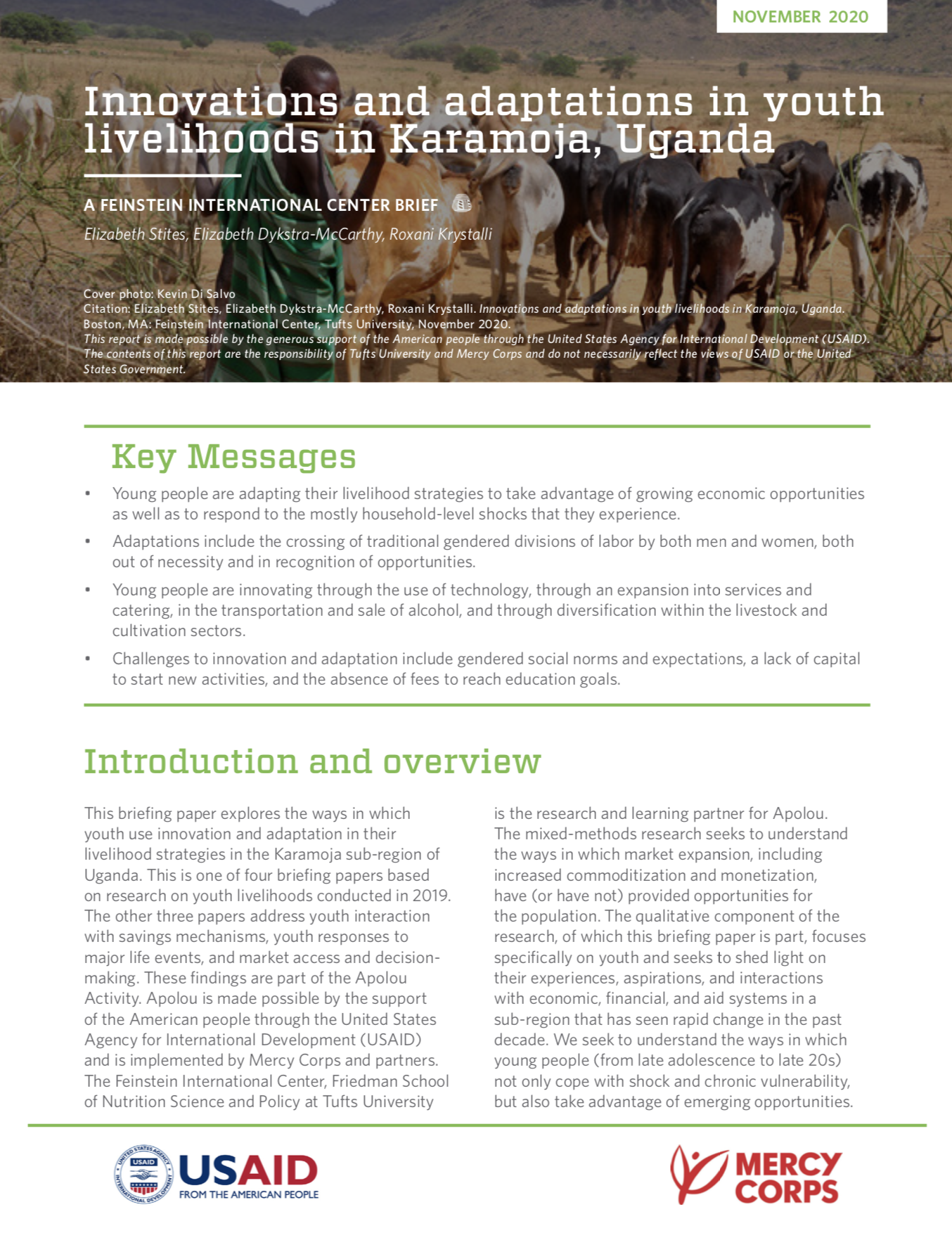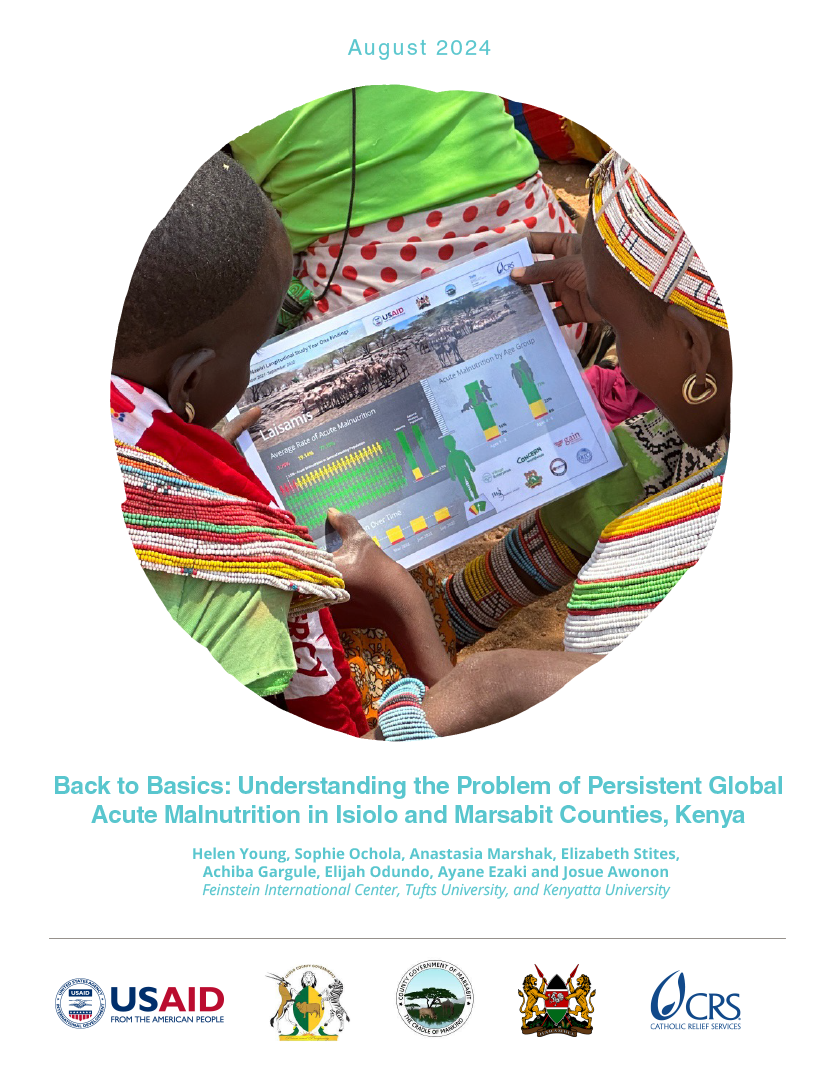This briefing paper examines the ways in which young people take advantage of emerging livelihood opportunities and respond to shocks, most of which occur at the household level. Adaptations to livelihood activities include the crossing of gendered divisions of labor by both males and females; the incorporation of new technology into livelihood strategies; expansion into the catering and service sectors; and diversification within the specializations of livestock and cultivation. Challenges to realizing livelihood goals include gendered norms and expectations, the absence of adequate financial capital, and lack of funds to cover secondary and tertiary education.
This briefing paper is based on qualitative data collection with young men and women in four districts of the Karamoja sub-region of northeastern Uganda. Collected in late 2019, these data are from the second in a series of four interviews occurring annually with a cohort of approximately 85 young people living in rural areas.
This is one of four briefing papers based on research on youth livelihoods conducted in 2019. The other three papers address youth interaction with savings mechanisms, youth responses to major life events, and market access and decision making. These findings are part of the Apolou Activity. The other briefs are available here.







